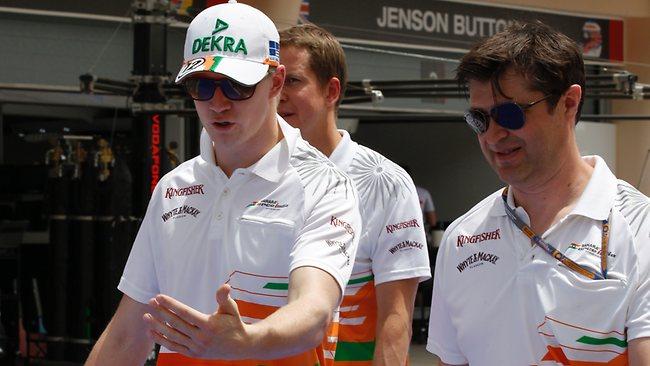Bombs increase Formula One fears in Bahrain
FORMULA One was forced to step up security today as widespread civil unrest erupted in Bahrain before the grand prix on Sunday.

FORMULA One was forced to step up security today as widespread civil unrest erupted in Bahrain before the grand prix on Sunday.
There were running battles in the streets of several villages, with activists reporting that the police had fired teargas. There was also disruption in Manama, the capital.
The teams gathered in the paddock of the Sakhir circuit, which will be the venue for the race, were shaken by reports that four mechanics from the Force India team were almost hit by a petrol bomb when they accidentally drove into a confrontation between police and protesters on their way back to their hotel from the track.
They escaped unhurt but two members of the Silverstone-based team asked to return to Britain.
Bob Fernley, Force India's deputy principal, called his team together in their hotel last night to reassure them and to issue new security advice after meeting Pasquale Lattuneddu, right-hand man to Bernie Ecclestone, the F1 chief executive, and John Yates, the former Metropolitan Police assistant commissioner and now security adviser to the Bahrain Government.
"We just want to make sure the right precautions are being taken," Fernley said. "We have employed extra security just to give our guys extra comfort and reassurance. We don't want our guys to be put in a place they shouldn't be."
Force India have fitted electronic trackers to their cars. Teams and leading media organisations, such as the BBC, are removing entry passes from the windscreens of their cars and minibuses as they leave the circuit and taking off or covering branded clothing. They are also now travelling in convoy on the highways, under orders to "stick together".
But the incident shook personnel from all the teams as they set up for the grand prix. Nico Hulkenberg, one of Force India's drivers this weekend, became the first driver to put his head above the parapet to question the decision to go to Bahrain.
"It is obviously not right that this sort of stuff happens," the German said. "We are here to race. The F1 business is about entertainment and these sorts of things should not really be happening to us.
"Whether it is right or not, I don't really know. It is difficult to say. I am not a politician, I am a Formula One driver - but it should not really be happening, should it? It is not good that we have to worry about it."
The teams are isolated from the worst of the clashes between police and protesters and the Force India incident could prove to be a one-off. But the Coalition for the Youth of February 14, one of the most radical protest groups, is threatening "Three Days of Rage" from today to coincide with the grand prix.
There was a noticeable escalation in protests more are promised nearer the race.
Activists plan to target the circuit and the centre of Manama, although security will be tightened. Sheikh Mohammed bin Isa Al Khalifa, the man who negotiated the deal to bring the race to Bahrain, pleaded with the world to acknowledge that many people wanted the race to go ahead, unlike the protesters who have employed the slogan: "Freedom not Formula One."
"We have more than 1,000 Bahrainis putting on a show for the world, there is pride, there is an economic benefit," he said, although he admitted bringing the race back after it was cancelled last year because of the bloody riots that spilt on to the streets was "a calculated risk".
The Times


